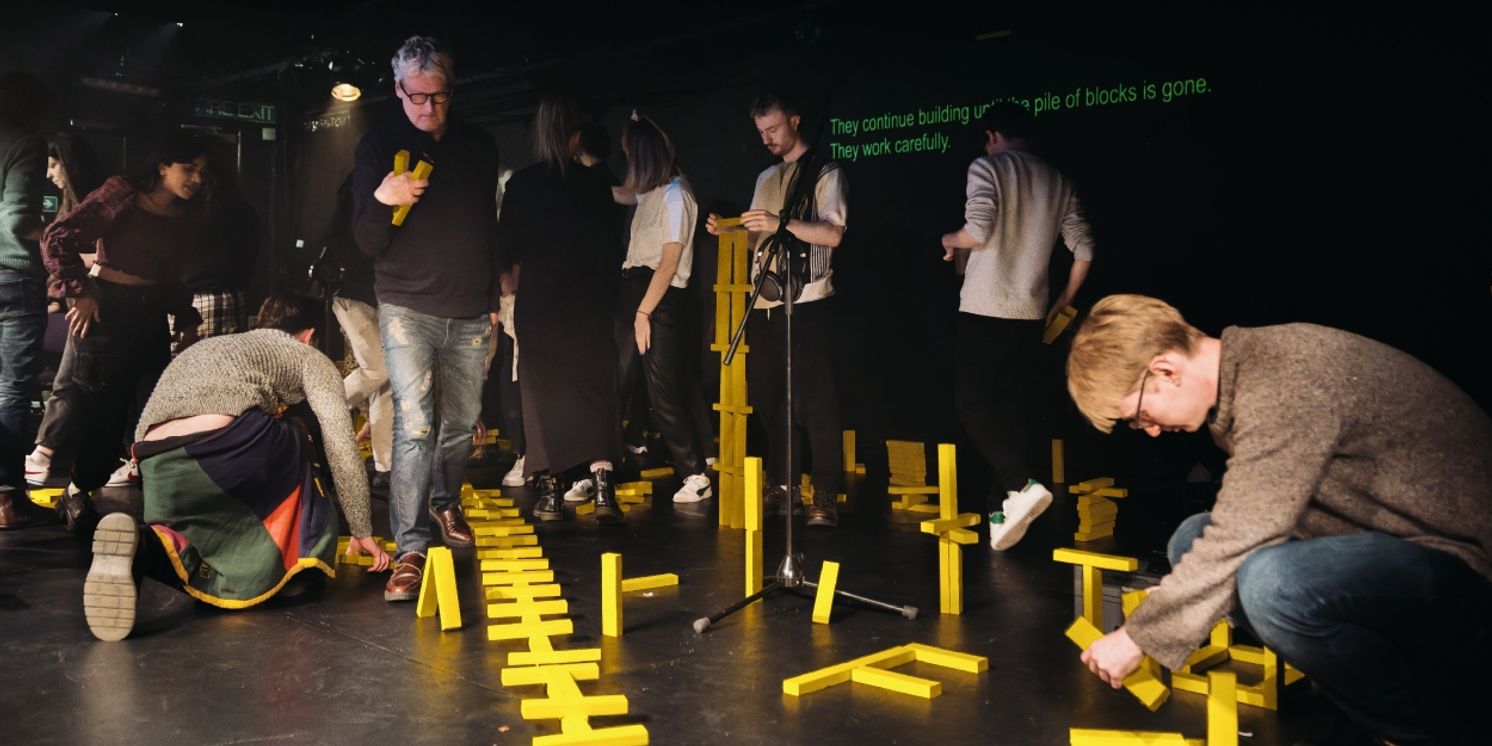Review: WORK.TXT at The Theatre Centre
Engaging satire puts the audience to work

Nobody wants to work anymore, right?
That’s the prevailing narrative, anyway. Everyone’s burnt out, or lazy, or a combination of both. Jobs are meaningless, don’t pay enough, or demand every hour of the waking day.
And yet.
And yet, given the chance, humans participate.
Given the chance, we want to be a part of things, to create, to have experiences.
When we’re not at work, we still work—on our hobbies, in the arts, on our passion projects. And sometimes work looks a lot like play, and play looks a lot like work.
The Theatre Centre’s second installment of a diptych of actorless programming, work.txt by Nathan Ellis, follows hot on the hooves of asses.masses, a collaborative video game about donkeys that audiences worked to complete for over seven hours, and which also called into question the nature of work and play in an increasingly automated world.
This hourlong show is automated as well; a stage manager presses the buttons that advance the words on the screen, but what we do with the dialogue and the stage directions is up to us. The audience literally creates the world of the show, which starts with a trickle that becomes a deluge of audience participation, as we build a small city from a large pile of wooden blocks stacked in the corner of the stage.
From its initial roll call of types of audience members, Ellis’ thought experiment becomes a sort of interactive poem that comes both to satirize work and to praise it, a funny sort of feel-good cooperative enterprise that is surprising and delightful.
Ellis’ show is predicated on the good nature of its audience. It hinges on correctly pinpointing our neuroses and feelings, catering to the eager and to the unwilling, allowing us to voice our sentiments in turn. The audience reads out the words on the screen, self-selecting to fit into groups: some words are read by people with different working conditions, different income brackets, different star signs, and different constitutions (those who run before work, in our audience, were a rare breed).
It’s a vocal map of the demographics of who comes to a show like this: the artists, the underpaid, the contract workers, and the beleaguered friends and family they’ve dragged with them. Ellis’ text doesn’t mean to create divisions or ranks between the audience, telling higher-income viewers that they’re forgiven, and moving on quickly enough between speakers that it’s more entertaining than anything else. It also acknowledges the various discomforts inherent in a show that is entirely audience participation, removing these barriers by naming them. The text assumes that we want to cooperate and be told we’ve done a good job, and obliges us with positive feedback.
As we get used to our roles as participants, we switch between this more group-oriented participation and smaller, more intimate scenes consisting of two volunteers, who read out scripts that emerge from a mysterious printer on the floor. The premise is simple: if one person chooses to opt out of work entirely via a simple physical action, how do the effects ripple outward?
By focusing in on different times and different venues in our newly-constructed city, Ellis is able to comment on several aspects of our current culture. He compares our work buzzwords to the more sedate functions of nature, examines the commodification of “vacation” and how we work hard to prove to others we’ve had a good time, and even takes aim at his own artistic commentary and its memeability and inability to just let things be. It’s hard not to laugh when a curator and gallery docent discuss creating an installation that requires audience participation as a way to involve people in the art, because, after all, it’s cheaper, and they like that sort of thing.
And we do; that’s the thing, we do.
Because there’s a deeply existential aspect to the experience in its premise about accepting that we are both present and ephemeral, unique and groupable, essential and replaceable. Ellis’ text scratches that therapeutic itch, with backup from Danny Vavrećka’s moodily colourful lighting design and Tom Foskett-Barnes’ cheerful music that always contains an edge of acid or of melancholy.
We know the blocks will be swept up for tomorrow’s show, and someone else will take the lead. We know our place will inevitably be filled if we stop for too long. We know we’re going to need a vacation to recover from our vacation.
And yet.
And yet, given the chance, we participate.
Photo of a previous production of work.txt by Alex Brenner
Reader Reviews

Videos

